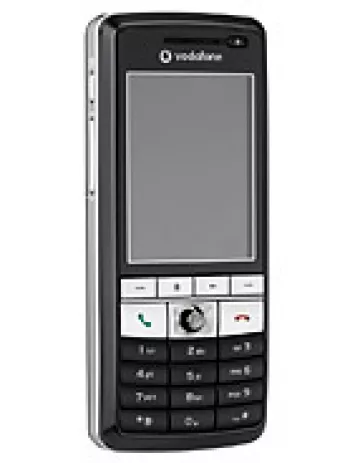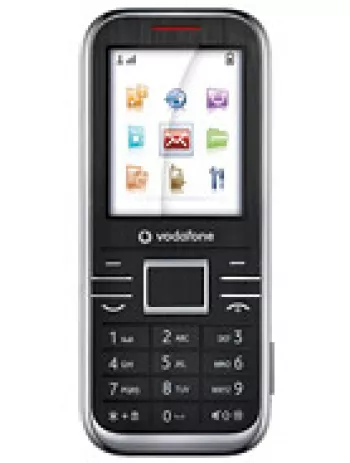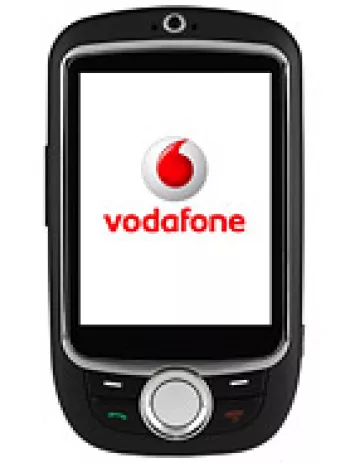
Overview of the Vodafone 1210
The Vodafone 1210 is a classic mobile phone that was announced in May 2007 and is now discontinued. It stands as a fascinating piece of mobile technology from the past, characterized by its basic yet effective features. This phone was particularly popular with users who needed a no-frills device that focused on delivering essential cellular functionalities rather than the advanced multimedia capabilities found in contemporary smartphones.
Design and Build
The design of the Vodafone 1210 is typical of early smartphones, with dimensions measuring 108 x 47 x 18 mm and a weight of 105 grams, making it compact and lightweight. The phone employs a Mini-SIM slot, which was standard for devices from that era. Its black color added a touch of elegance and simplicity.
Display
The Vodafone 1210 features a 2.2-inch TFT display that supports 65K colors, which was adequate for basic tasks such as messaging and browsing. The screen resolution is 240 x 320 pixels, with a 4:3 aspect ratio at approximately 182 ppi density, offering a reasonable visual clarity for the time.
Platform and Performance
Powered by a 32-bit Intel XScale PXA270 312 MHz processor, the Vodafone 1210 runs on Microsoft Windows Mobile 5.0 for Smartphones. Although not as powerful as today’s processors, it was sufficient for the lightweight applications of its time, such as messaging, contacts management, and basic Internet browsing using WAP 2.0/xHTML or HTML.
Memory and Storage
The internal storage of the Vodafone 1210 includes 128MB of RAM and 64MB of ROM, which could be expanded via a dedicated microSD card slot. This storage capability allowed users to store limited contacts, text messages, and small-sized files.
Network Capabilities
The Vodafone 1210 supports both GSM and UMTS technologies. It operates on GSM 900/1800/1900 bands and UMTS 2100 for 3G connectivity, providing a maximum data speed of 384 kbps, which was suitable for basic Internet services.
Sound and Alerts
For sound and alerts, the Vodafone 1210 comes equipped with a loudspeaker. It supports vibration and offers various ringtones including polyphonic (64 tones) and MP3 ringtones. However, it lacks a 3.5mm audio jack, which limits audio output options.
Communication Features
The Vodafone 1210 includes Bluetooth connectivity, allowing for wireless pairing with other Bluetooth-enabled devices. Unfortunately, it lacks WLAN, radio, GPS, and uses a proprietary USB connection for charging and data transfer.
Battery Life
Regarding power, the Vodafone 1210 is equipped with a removable Li-Ion 1100 mAh battery. It offers a standby time of up to 240 hours and a talk time of up to 4 hours. This battery life was typical for early smartphones, providing enough usability for a day with moderate use.
Features and Applications
Although the Vodafone 1210 lacks a camera, sensors, and advanced multimedia capabilities, it provides users with a reliable platform for essential phone functionalities. It is designed with a focus on simplicity and utility, making it ideal for users who prioritize voice and text communication.
Conclusion
In summary, the Vodafone 1210 is an embodiment of the mobile technology state in the mid-2000s, where the focus was on essential communication functionalities rather than the media-rich capabilities seen in modern smartphones. Its simple design, combined with basic smartphone features, made it a suitable choice for its time, particularly for users who desired straightforward phone services without the complexity of modern devices.
Key Features of Vodafone 1210
- Network Technology: GSM / UMTS, supporting 2G and 3G bands.
- Compact Size: Dimensions of 108 x 47 x 18 mm and weighing 105 g for portability.
- Display: 2.2-inch TFT screen with 65K colors offering a 240 x 320 pixels resolution.
- Operating System: Runs on Microsoft Windows Mobile 5.0 for Smartphones.
- Processor: Powered by a 32-bit Intel XScale PXA270 312 MHz CPU.
- Memory: Includes 128MB RAM and 64MB ROM, with a microSD card slot for additional storage.
- Bluetooth Connectivity: Yes, enabling wireless communication with other devices.
- Notification Types: Supports Vibration, Polyphonic(64), and MP3 ringtones.
- Battery: Removable Li-Ion 1100 mAh battery with up to 240 hours stand-by time and up to 4 hours talk time.
Disadvantages of Vodafone 1210
- Lacks a camera feature
- Limited display size with a small screen-to-body ratio (~29.5%)
- Low memory capacity (128MB RAM, 64MB ROM)
- Outdated operating system (Microsoft Windows Mobile 5.0 for Smartphone)
- No WLAN/Wi-Fi support
- Does not support GPS/positioning
- No FM radio functionality
- Proprietary USB port limits connectivity options
- No standard 3.5mm audio jack
- Limited 3G speed (384 kbps)
- Discontinued model, outdated technology

View Also
More Phones
All Rights Reserved +13916 Phones © Mobilawy 2025

























